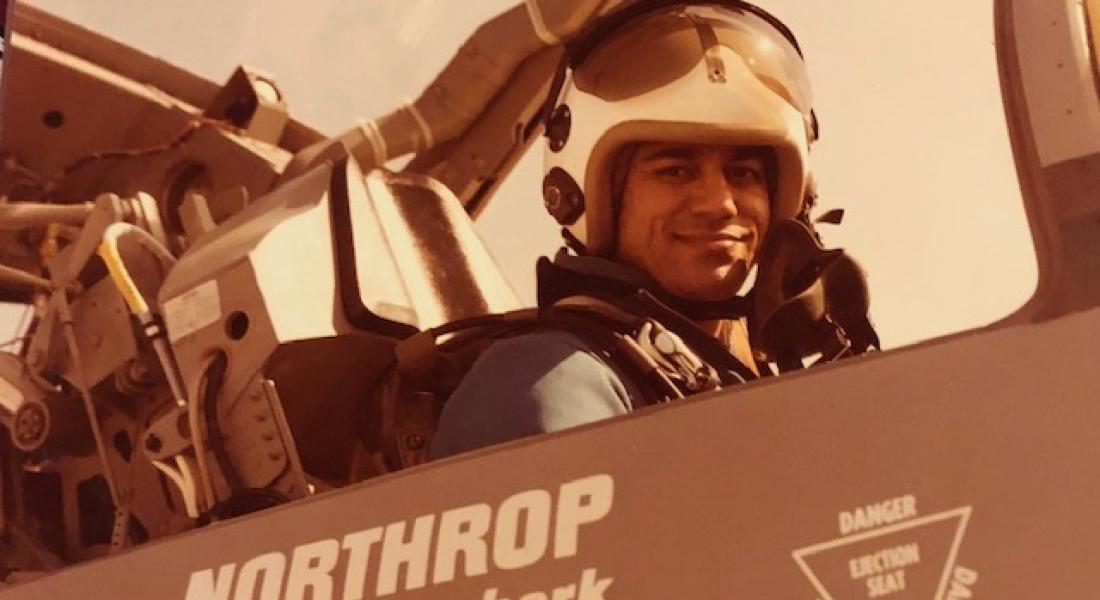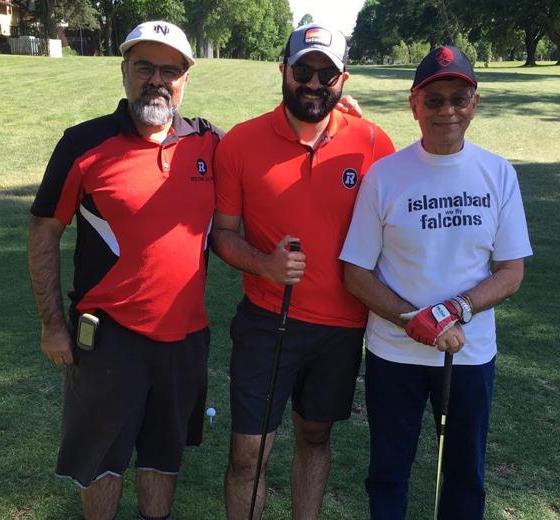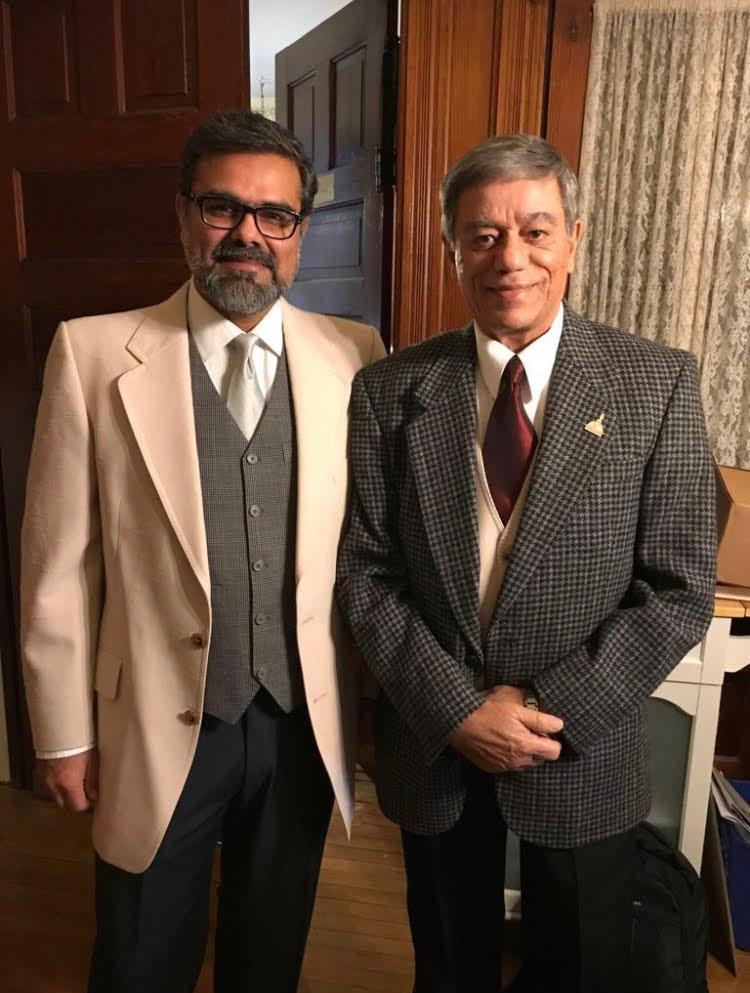
Pictured: Retired Air Vice Marshal Abbas Mirza, then Group Captain, pictured here test flying the F-20 Tigershark at Edwards Air Force Base, 1983.
Abbas Mirza, head of flight safety with the Pakistan Air Force, looked at his watch. An aide had just rushed to the golf course to deliver the urgent message that a C-130 aircraft carrying President Muhammad Zia-ul-Haq had crashed near the city of Bahawalpur. There were no survivors.
It was precisely 4 p.m. on August 17, 1988.
That’s where Mirza’s son Mahan, executive director of the Ansari Institute for Global Engagement with Religion at the University of Notre Dame, intends to begin a new book about the death of Zia and how his father, Abbas, was tasked with the official investigation of a case that’s still shrouded in mystery. It’s never been entirely clear that the crash was an accident or the more sinister work of assassination.
“A lot of material on this is still classified,” says Mirza, whose father – a fighter pilot during the 1971 conflict between Pakistan and India—will celebrate his 80th birthday in autumn. “He has personal recollection, he has notes, and we're going to draw on that,” Mirza explains.
Mirza is receiving grant support from the Kellogg Institute to travel to Pakistan for both the interviews on Zia’s death and a separate story about how, twenty years after the crash, Mirza’s younger brother, Faran, was abducted from Islamabad and remained missing until successful negotiations led to his return about three months later.
“We intend to visit the site of the plane crash and retrace the journey (Abbas) took to negotiate for my brother,” said Mirza. “I want to hear the sounds and feel the landscape, to have some thick description of the events.”
 The personal and the political
The personal and the political
Mirza was pursuing a doctoral degree at Yale University when Faran was taken by Islamist extremists opposed to the Pakistani government in the post-September 11 era. “The group had its own goals but it was basically just fundraising,” Mirza said. “They were doing a lot of kidnappings to raise money.”
At the same time, the saga of Zia’s crash and the details of Abbas Mirza’s investigation some 35 years ago promise to make Mirza’s book a compelling page-turner. There was some renewed interest in Zia’s death in the late 1990s, as Pakistan emerged as a nuclear capable nation, and again as the September 11 attacks heightened the global attention toward the Taliban and other Islamic extremist organizations.
Since then, though, there’s been scant reporting about a long-forgotten plane crash that followed a field demonstration of American military equipment in the desert at Tamewali and claimed the lives of Americans, too—including Arnold Raphel, a former United States ambassador to Pakistan.
The Federal Bureau of Investigation report remains classified, but reports in U.S. media speculated that the cause of the crash could have been mechanical failure. That wasn’t a view shared by Pakistani investigators, who concluded in their 365-page report that a criminal act or sabotage led to the loss of aircraft control.
While it didn’t appear that Pakistan’s military was involved in a coup against Zia, there were findings to support a few different theories, including one of toxic VX nerve gas hidden in mangoes that incapacitated the pilots. Some theories placed responsibility on the Bhutto family, from whom Zia had seized power in 1977 and who returned with the election of Benazir Bhutto just months after Zia died.
 Pakistan’s history with an eye to the future
Pakistan’s history with an eye to the future
Despite Abbas Mirza’s best efforts, some things may never be known about what happened to those aboard the president’s plane, known as “Pak One.” The severity of the impact left little evidence from the passenger remains. An August 2018 account in Karachi-based media outlet Dawn, written on the 30th anniversary of the crash, questioned the secrecy that surrounded the event and appealed “for Pakistan to reconcile with its past and confront the many truths that have never seen the light of day.”
Yet the new book may help. Once Mirza and his father complete their inquiries in Pakistan, he plans for Abbas to come to South Bend for the next stage of the research and writing. His vision is for a work of creative nonfiction, with vivid imagery and creative writing that weaves a narrative-style story based on historical facts. Mirza hopes to offer an understanding of Pakistan and the challenges it faces today.
The book is meant to tell “a real human story, nurturing narrative empathy for a faraway part of the world that people tend to view in one-dimensional terms,” Mirza said. In that sense, he envisions the book to be consistent with the goals he works to advance through the Ansari Institute and as a Kellogg faculty fellow.
“It will deal with questions of human difference, across religion, society, and geopolitics, in an age where we need greater cooperation to address global problems,” Mirza said of the book. “It has peacebuilding in mind.”
The Kellogg Institute for International Studies, part of the Keough School of Global Affairs at the University of Notre Dame, is an interdisciplinary community of scholars and students from across the University and around the globe that promotes research, provides educational opportunities, and builds partnerships throughout the world on the themes of global democracy and integral human development.





